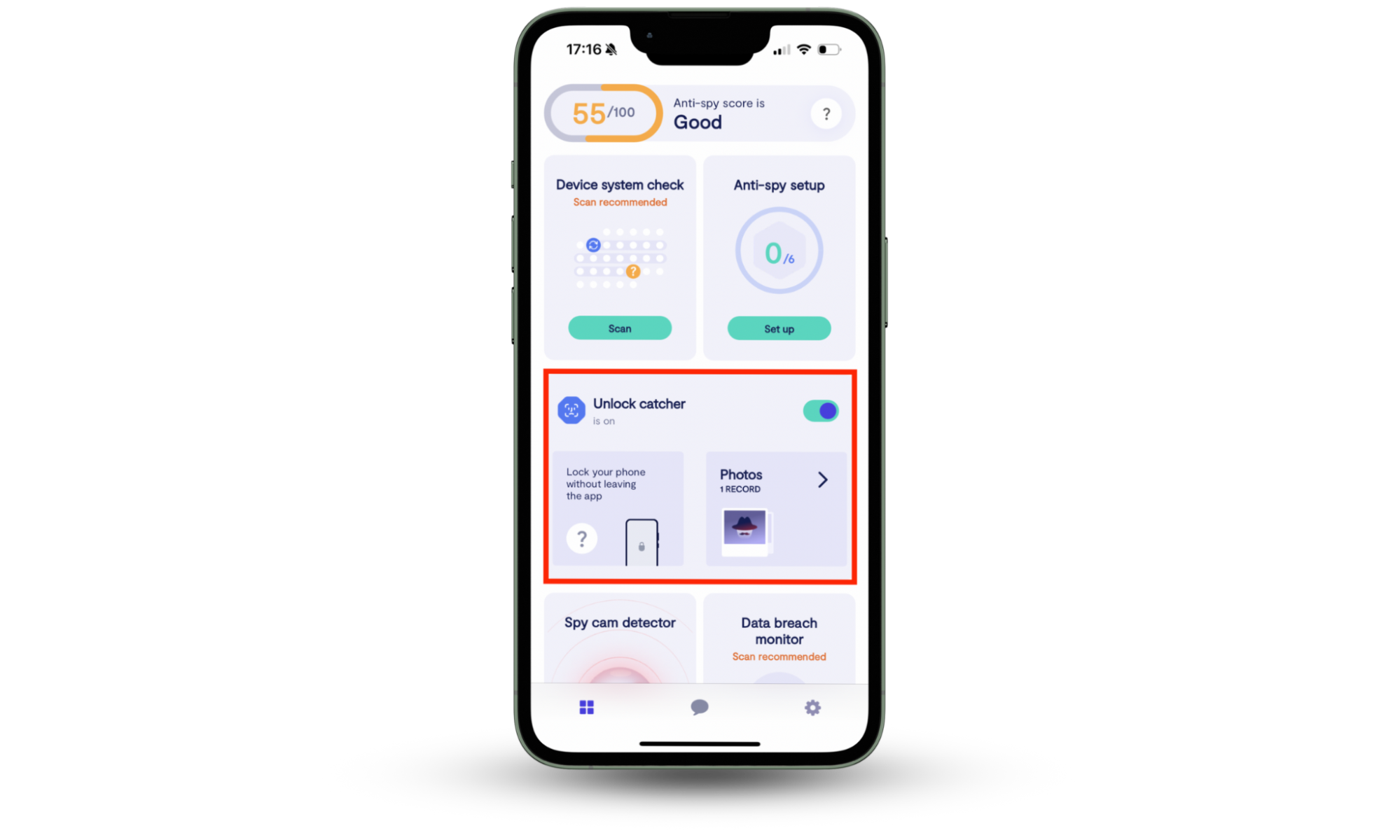Table of contents
- What are toxic relationships
- Signs of toxic relationship
- 1. Obsessive contact and possessiveness
- 2. Manipulation and guilting
- 3. Belittling, sabotage, and isolation
- 4. Control and monitoring: actions and digital intrusion
- 5. Denial of responsibility and blame-shifting
- 6. Dishonesty, betrayal, and deception
- 7. Always keeping score/passive-aggression
- 8. Jealousy and resentment
- 9. Zero support for your success
- 10. You become invisible: ignored needs and disrespect
- Conclusion
What are toxic relationships
Toxic relationship settings might include manipulation, isolation, extreme jealousy, and a lack of emotional support. Instead of building the dynamic on a foundation of support, a toxic person invokes subtle passive-aggressive criticism, blame-shifting, and an overall unsustainable state for people involved in the relationship. The absence of respect and understanding, along with endless streams of conflict, can even lead to physical harm in some relationships.
Toxic relationship symptoms also include controlling behaviors. If your girlfriend stalks your social media or your boyfriend demands to see your texts, they are likely trying to spy on your phone, too. These behaviors might be excused as "worry", but actually indicate the need to control you. Clario Anti Spy’s Hidden app scan will help you make sure your mobile device is safe from spying apps.
Signs of toxic relationship
Toxic relationship signs include disrespectful behaviors, manipulation, obsessive contact, dishonesty, control, and extreme jealousy. The obsessive need to contact you, always be aware of your whereabouts, with escalation to checking your texts, getting your passwords, and full access to the phone, is a controlling, toxic behavior in a relationship. It can take place in a romantic setting, within a family, among friends, or with coworkers.
I’ve created a table to help you identify a toxic relationship:
| Sign | Description |
| Obsessive contact and possessiveness | They demonstrate obsessive communication needs to the point where you feel you need to answer their calls and texts immediately. |
| Manipulation and guilting | They manipulate and control you by influencing your feelings and holding you responsible for their emotions. |
| Belittling, sabotage, and isolation | They tell insulting jokes, cut you off from your networks, and share harmful rumors about you. |
| Control and monitoring: actions and digital intrusion | They keep tabs on you, observe your social activities, and may have tracking software on your devices. |
| Denial of responsibility and blame-shifting | They ignore their duties and accountability, while you are blamed when things go wrong. |
| Dishonesty, betrayal, and deception | They lie, hide the truth, or engage in betrayal, such as disclosing private information about you behind your back. |
| Always keeping score/passive-aggression | They remind you of your past errors during every argument, using them as ammunition, and doing so in an overt or passive-aggressive way. |
| Jealousy and resentment | They exhibit extreme jealousy of your achievements and success, to the point where it evolves into competition and resentment. |
| Zero support for your success | They offer little to no support for your goals, dreams, and accomplishments, ensuring their own success comes first. |
| You become invisible: ignored needs and disrespect | They disregard your feelings and opinions, making you feel as though your needs don't matter. |
1. Obsessive contact and possessiveness
They contact and message you nonstop throughout the day, and if you take the time to respond or don't answer a call right away, they will likely question you later that day. Sounds familiar? Your partner might try to mask their obsession with love. However, constant phone calls, messages, or any other forms of control indicate unhealthy behavior.
It often results in digital surveillance. Don't be surprised when you catch them looking through your phone. A toxic, obsessive partner tries to control your communication with others. But you can stop them from violating your privacy.
Clario Anti Spy’s Unlock catcher takes pictures of whoever tries to unlock your device. Intruders are unaware that they are being photographed, allowing you to document unauthorized access. The app will store the photographs of the intruder with timestamps in the Photos folder under the Unclock catcher. Clario Anti Spy’s Unlock catcher works on both Android and iOS mobile devices.
Here’s how to use Clario Anti Spy’s Unlock catcher:
- Download Clario Anti Spy and set up an account.
- Locate the Unlock catcher feature.
- Toggle the switch on (it should turn green).
- From now on, Clario Anti Spy app will take secret shots of everyone trying to unlock your phone.

2. Manipulation and guilting
Manipulation is a powerful strategy to influence your emotions when your toxic partner wants you to behave or feel a particular way, even if it comes at your detriment. It can be direct, like threatening to hurt themselves if you don't do as they wish, or it can involve guilt as a means to get you to comply.
An example of this blame game is when your partner implies you are responsible for their emotions or actions. Statements like, "It would hurt my feelings if you did that," are designed to restrict your range of actions.
3. Belittling, sabotage, and isolation
Making you feel weak and undeserving can be achieved through other means, one of which is belittling, often through backhanded compliments. Imagine a toxic partner saying, “You always manage to mess things up, don't you?" to embarrass you by telling a story you didn’t want to share in public.
One of the many unethical behaviors your partner may impose on you could include rumor-spreading to gain power over you. Isolating you from the people you care about —friends, family, and coworkers—to gain control is another way to undermine you.
4. Control and monitoring: actions and digital intrusion
Ignoring and disrespecting boundaries is a common feature of toxic partners. Some people feel entitled to check your email, phone, social media, and even your private messages. Some take it to a higher, more dangerous level by installing monitoring spyware on your phone to spy on your conversations, track your movements, and exert overall control over you.
This is a gross violation of your privacy and potentially dangerous when it comes to the exposure of your personal, sensitive data. If you suspect foul play, learning if your boyfriend is tracking your phone can help you identify invasive monitoring before it escalates.
Certain malicious apps can expose your passwords, apps, financial information, and other sensitive data, which can be used for manipulation, intimidation, or worse, blackmail.
Note
If your partner exhibits controlling behaviors, you should know how to find a tracking device on your car, as it is not uncommon for controlling individuals to track their partners' whereabouts by installing tracking devices on their vehicles. You can use Clario Anti Spy's Spy cam detector to check for connected cameras or trackers.
5. Denial of responsibility and blame-shifting
A toxic person rarely takes responsibility for their actions. They do excel at blame-shifting, though. They'll yell at you and then justify by having a bad day at work. They deflect, so you are always the one left to carry the burden of blame. In time, you may find yourself apologizing for something you didn't do just to avoid confrontation. This will cycle you through guilt and doubt.
6. Dishonesty, betrayal, and deception
It becomes a vicious cycle when a person repeatedly breaks your trust. Telling little lies, hiding, or bending the truth creates instability within the relationship. If your partner lies to people, there is no doubt they will lie to you as well. This behavior, repeated time and again, will inevitably result in broken trust.
7. Always keeping score/passive-aggression
Does your partner always bring up your past mistakes? See, healthy relationships and forgiveness go hand in hand, but in toxic settings, one person is sure to fixate on the negative and keep a detailed score of your missteps. Keeping score turns a relationship from a collaboration to a competition. Most of the time, it is accompanied by passive, indirect aggression, such as silence, sarcasm, and backhanded comments.
8. Jealousy and resentment
Extreme jealousy can manifest as resentment towards your accomplishments, creating an environment of distrust and toxicity.
“Over time, frustration or resentment can build up and make a smaller chasm much bigger," relationship therapist Jor-El Caraballo says. Your partner may accuse you of flirting with your colleagues and get mad at you for getting recognized at work with something like, "You think you're better than me now." This creates a wider emotional disconnection.
9. Zero support for your success
When you're in a toxic relationship, your partner may dismiss your passions and achievements, leaving you feeling unworthy, while making their accomplishments the center of attention.
"Healthy relationships are based on a mutual desire to see the other succeed in all areas of life," Jor-El Caraballo notes.
10. You become invisible: ignored needs and disrespect
When your feelings, needs, and opinions are regularly overlooked, it is quite common to suppress your individuality. You end up sacrificing your interests, hobbies, and, most importantly, self-care for a partner. As self-neglect increases, you may ultimately lose your sense of identity.
"Going along with whatever your partner wants to do, even when it goes against your wishes or comfort level, is a sure sign of toxicity", says clinical psychologist Catalina Lawsin, PhD.
Conclusion
Some examples of toxic behavior in relationships are severe jealousy, lying, manipulation, emotional unavailability, and more. Excessive toxic control can lead a partner to require you to give all of your phone and social media passwords and access so they can constantly monitor you. If your boyfriend is spying on you, for instance, on social media, he might also try to install spying apps on your phone.
To maintain your digital autonomy, use Clario Anti Spy. Its Unlock catcher feature will take snapshots of anyone who tries to access your mobile device without your knowledge. Meanwhile, the Hidden app scan will help determine malicious apps and intrusive app permissions.


